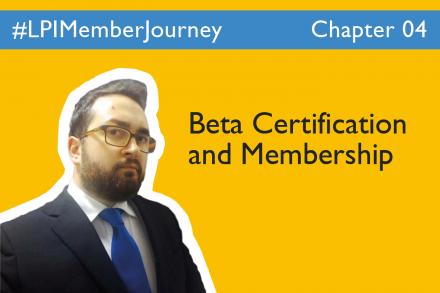Simone “Simo” Bertulli: Beta Certification and Membership

I often ask myself whether it is possible to define a fundamental characteristic that can make an IT professional satisfied with their career path, with an eye to the future and their own growth process.
In my opinion, the most appropriate and necessary trait is continuity.
Continuity as a mindset, a challenge, an objective: whatever specific interpretation we want to give it, the basic message that this concept carries is very consistent.
The message suggests the importance of continuity and how it can —probably even must—be linked to a sense of responsibility, which ideally is inherent in the individual’s evolutionary path.
This path has to be rooted in the passion and dedication for your job.
In this path, you have to consider the quality of training as a complementary element from every perspective.
LPI’s 2021 started with an excellent signal in this direction: all the LPIC 3 specializations exams are going to be updated. We just had a beta session for them. And this update brings along many exciting things.
For a start, a significant change to the program splits the LPIC-3 virtualization and high-reliability certification into two distinct certifications:
- LPIC-3 Enterprise Virtualization and Containerization
- LPIC-3 Enterprise High Availability and Cluster Storage
This breakdown by macro-areas was in the air, as there have been substantial updates to these certifications, especially in the area regarding the virtualization and container technologies increasingly used in cloud environments.
The other two certifications will also be available for beta exams, namely:
- LPIC-3 Enterprise Security
- LPIC-3 Enterprise Mixed Environment
Substantial updates in the security certification concern the Objectives related to network security, threat, and penetration testing.
The topics of Identity Management and integration with other Enterprise-class operating systems are in the Mixed Environment exam.
I was looking forward a lot to participating in such an exciting development program: remember, for the LPI Members Beta Exams are free: be ready for the next session!
Taking a beta certification exam in any speciality is an economic advantage over the traditional exam. But please: always fulfill your side of the bargain when you take a beta exam. Leaving lots of feedback to help LPI make the exam as strong as possible, and representative of the work it covers in the field, is useful for the whole community.
Another element that makes participation in these experimental phases of exams stimulating is the possibility of getting involved by studying multiple sources and with different methods, applying knowledge and criteria used in your own work experience.
All the considerations I have listed generate considerable added value, especially if it sums up to the other candidates’ feedback.
Through the process adopted by LPI for the beta examinations, when the results are processed, and therefore the tests are published in their final form, it will be possible to satisfy all the perceived quality standards fully.
Which means: both pure technical knowledge of the subject and the psychometric model of the exam will provide candidates with the best possible experience.
<< Read the previous post of this series | Read the next post of this series >>
